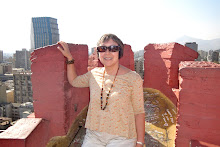In the post-war era, equality was at the core of Japanese society. Everyone earned roughly the same amount of money and their lifestyles were similar. People used an expression, ichioku-sohchu-ryu, to describe society, which meant, ‘100 million completely middle class’ or ‘a nation of middle-class people.’1 Equality mentioned here is not only in terms of income and wealth, but also in terms of opportunity. Everyone got equal educational and occupational opportunities. Everyone had opportunities to benefit from social welfare. Thus, Japanese equality was handed down over generations, enabling the nation to revive from the loss of the War.
In the 1990’s, however, Japan suffered from a serious recession and could not avoid changing its social systems. During this recession, companies were forced to cut costs for employees and started to hire temporary instead of full-time workers so that they could save money. This trend led to the creation of a lot of young people known as freeters, who did not have regular work. As for the government, it tried to reform the economy to get over the economic crisis and ended up widening inequality.2 As a consequence, Japanese society changed its way into a increasingly unequal society.
Nowadays, Japanese society is accelerating the speed of division into haves and ‘have-nots’, causing serious problems. The situation is especially hard for freeters. Some of them cannot even afford to rent a room, so they use round-the-clock cafes or McDonald’s restaurants to spend nights. They are so-called “net café refugees,” a new type of working poor. This trend is becoming more and more common because of the economic crisis, as well as the decreasing value young people put on the adjustment to Japan’s traditional work ethic.3 It is estimated that this kind of working poor will expand in the future.
As society changed in Japan, the gap between rich and poor increased and the social situation worsened. Japan once boasted of its complete equality within the nation, but today people fear increasing inequality. Rich people make a further fortune while poor people have difficulty in making ends meet. This trend led to change the lifestyles of freeters and may have a negative effect on the entire Japanese economy in the near future.
Hiroaki Minami
1 http://www.usatoday.com/money/world/2006-07-23-japan-usat_x.htm
2 http://www.breitbart.com/article.php?id=070815123710.uge33ya9&show_article=1
3 http://www.iht.com/articles/ap/2007/08/28/asia/AS-GEN-Japan-Net-Cafe-Homeless.php

1 comment:
I liked how the author writes from the beginning to end. The author explained all of the historical events in time orders so that the readers can easily catch those problems and meanings. Moreover, I learned the history and problems between the ‘haves’ and ‘have nots’ of Japan better through this essay.
Sam Jeong
Post a Comment